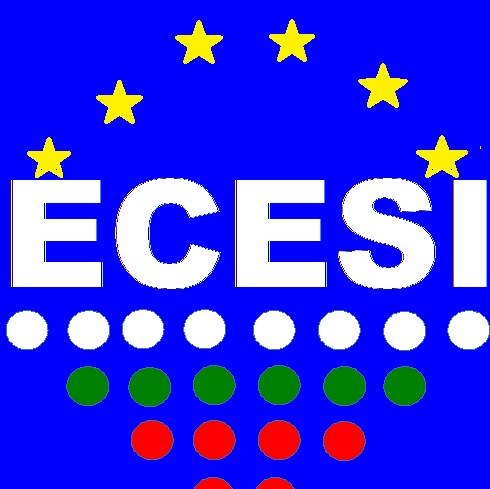Elektrikų profesinio ugdymo / mokymo efektyvumo ir patrauklumo didinimas
Tikslai
Projektu siekiama didinti esamų ir būsimų elektrikų profesinius įgūdžius ir kompetencijas pastatų elektros įrenginių energinio efektyvumo srityje ir taip padėti Europos elektros pramonei susidoroti su kvalifikuotų specialistų trūkumu. Ugdant naujus profesinius įgūdžius ir kompetencijas, siekiant pagerinti pastato energetinį efektyvumą, bus apmokyti kvalifikuoti elektrikai, kurie bus tikras pokyčių variklis - taupys išteklius ir kompensuos anglies pėdsaką efektyviai naudojant energiją gyvenamuosiuose pastatuose. Įgyvendinus projektą, bus rengiami naujausi profesiniai mokymai apie pastatų elektros instaliacijos energinį efektyvumą. Jo rezultatas – apmokyti kvalifikuoti specialistai, gebantys taikyti modernius technologinius sprendimus, padedančius sumažinti pastatų energijos suvartojimą ir CO2 emisijas. Turėdami įgytų žinių ir kompetencijų, elektrikai galės valdyti pastato automatiką, stebėti energijos parametrus ir stebėti visą pastato įrangą, o tai leis ekonomiškiausiu būdu taupyti ir taupyti energiją. Kvalifikuotų specialistų naudojimas suteikia pasitikėjimo, kad bus pasiektas tinkamas energijos suvartojimo lygis pastatuose. Internetinio mokymosi naudojimas taip pat pagerins tiek besimokančiųjų, tiek jų dėstytojų skaitmenines kompetencijas. Mokymo moduliai bus teikiami kaip atvirieji švietimo ištekliai.
Fonas
Perėjimas prie švarių technologijų ir efektyvaus energijos vartojimo prietaikų yra labai svarbus siekiant Europos Sąjungos klimato tikslų. Optimizavus energijos suvartojimą ir sumažinus energijos nuostolius, pastatų įrenginiai turės mažesnį poveikį aplinkai. Energetiškai efektyvių technologinių sprendimų įgyvendinimas pastatų elektros įrenginiuose ir žaliosios pertvarkos įgyvendinimas reikalauja kvalifikuotų ir kvalifikuotų specialistų.
Partnerystė
- Socialinis CRM tyrimų centras e. V. (Vokietija)
- REZEKNES TEHNOLOGIJU AKADEMIJA (Latvija)
- Europos švietimo, mokslo ir inovacijų centras (Bulgarija)
- ALYTAUS PROFESINIO RENGIMO CENTRAS (Lietuva)
- iTStudy Hungary Számítástechnikai Oktatóés kutatóközpont Kft. (Vengrija)
- Schnellkraft Personalmanagement GmbH (Vokietija)
Planuojami rezultatai
Planuojami trys EE-VET projekto rezultatai:
Profesinio rengimo ir mokymo modulių kūrimas
Pagal partnerystę bus sukurti 3 novatoriški mokymo moduliai, kurie bus prieinami 6 ES kalbomis (anglų, lv, bg, lt, hu, de).
E-mokymosi aplinkos kūrimas
E-mokymosi aplinkos kūrimas. Mokymo modulių pritaikymas e-mokymosi technologijų reikalavimams. Platforma bus atrinkta iš tų, kurie turi atvirojo kodo kodą, ir bus pritaikyta pagal su projektu susijusios veiklos poreikius, kad tiktų visiems konsorciumo partneriams. Rezultatas padės sukurti novatorišką atvirą internetinį kursą profesinio mokymo studentams ir mokytojams, kuris suteiks jiems žinių ir įgūdžių, reikalingų energiją taupančio elektriko energijos vartojimo efektyvumo profiliui.
Profesionālās izglītības un apmācības apmācāmo rokasgrāmatas izstrāde par tiešsaistes moduļu ieviešanu
Vadovas instruktoriams, kaip taikyti internetinius modulius ir jų išplėtimo bei tobulinimo galimybes. Vadovas skirtas e. mokymosi kursams. Vadovas supažindins studentus su nuosekliais žingsniais, kaip pasiekti kurso turinį internetinėje aplinkoje ir kitus kurso komponentus, tokius kaip diskusijų forumai, užduotys, testai ir kt. Ši medžiaga bus išversta ir pritaikyta šalių partnerių kalboms. Produktas yraskirtas oficialiai naudoti tik tikslinių grupių atstovams ir bus prieinamas projekto platformoje.
Poveikio
Europos profesinio rengimo ir mokymo paslaugų teikėjams bus suteikta nemokama prieiga prie internetinio novatoriško mokymo produkto elektrinių pastatų energijos vartojimo efektyvumo srityje. Tai pagerins profesinio mokymo įvaizdį elektrotechnikos srityje Europos lygmeniu ir pridėtinę vertę visai Europos profesinio mokymo sistemai, padidins jos patrauklumą ir ypač studentų įgūdžius. Ilgalaikis projekto poveikis bus pagerintos nacionalinės energijos vartojimo efektyvumo profesinio rengimo ir mokymo strategijos, pateikiant rekomendacijas politikos formuotojams ir atsakingiems vyriausybės pareigūnams, išplatintas atitinkamoms ministerijoms ir agentūroms kiekvienoje šalyje.
Partnerystė
Atsižvelgiant į europinę projekto veiklų apimtį, projekto komanda yra tarptautinė ir apima partnerius iš Latvijos, Bulgarijos, Vokietijos, Vengrijos ir Lietuvos, kurie kurs, išbandys ir sertifikuos mokymo produktą nacionaliniu ir Europos lygiu. Partnerystėje dalyvauja švietimo organizacijos iš aukštojo ir suaugusiųjų švietimo, mokslinių tyrimų centrai iš energetikos sektoriaus, taip pat darbo rinkos atstovai.







